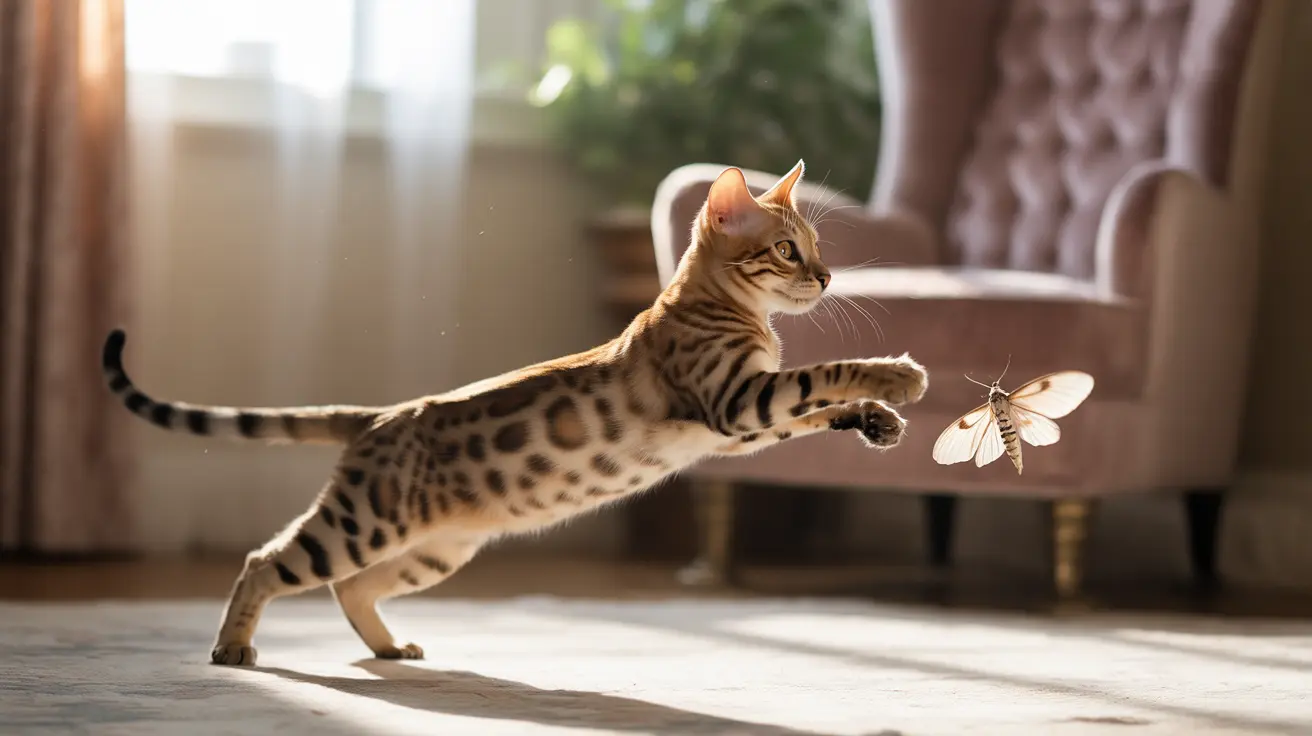As a cat owner, you've likely witnessed your feline friend's fascination with moths. That mesmerizing flutter draws them into an instinctive hunting mode, often ending with the moth becoming an impromptu snack. But is this natural behavior safe for our pets? Let's explore the science behind cats eating moths and what you need to know to keep your pet safe.
While the sight of your cat catching and eating moths might be concerning, there's generally good news. Most moth species are non-toxic to cats, and this behavior is actually a natural expression of their hunting instincts. However, there are some important considerations and exceptions you should be aware of.
Understanding Why Cats Hunt Moths
Cats are natural predators, and their attraction to moths stems from deep-rooted hunting instincts. The erratic flight patterns of moths trigger their chase response, making these insects particularly enticing targets. This behavior isn't just about food – it's also about mental stimulation and exercise.
Safety of Moths for Cats
The majority of moths your cat encounters are harmless if eaten. However, there are some factors to consider:
Common Moths
- Most household moths are non-toxic
- Small quantities rarely cause issues
- Provide natural enrichment for indoor cats
Potentially Dangerous Situations
- Garden Tiger Moths can cause irritation
- Moths exposed to pesticides pose risks
- Large moths might present choking hazards
Potential Health Concerns
While moth consumption is generally safe, there are some situations that warrant attention:
Immediate Risks
- Digestive upset from eating too many moths
- Possible allergic reactions (rare)
- Choking hazards with larger species
Long-term Considerations
- Cumulative effects of pesticide exposure
- Nutritional implications of regular insect consumption
- Impact on hunting behavior
Prevention and Management
If you're concerned about your cat's moth-hunting habits, consider these preventive measures:
- Install proper window screens
- Use cat-safe moth deterrents
- Provide alternative hunting activities
- Maintain regular feeding schedules
Frequently Asked Questions
Can cats safely eat moths, and are most moth species non-toxic to them?
Yes, most moth species are safe for cats to eat. The vast majority of household moths pose no significant toxic threat to cats, though moderation is key.
What symptoms should I watch for if my cat eats multiple moths or a potentially toxic species?
Monitor for vomiting, diarrhea, excessive drooling, or unusual lethargy. If you notice these symptoms or any abnormal behavior, contact your veterinarian.
Are there any specific types of moths, like the Garden Tiger Moth, that could be harmful to cats?
Yes, the Garden Tiger Moth and its caterpillar form can cause irritation due to their defensive hairs. If your cat encounters these or other brightly colored moths, monitor them closely.
How can I prevent my cat from eating moths and other insects indoors?
Install proper screens, reduce outdoor lighting that attracts moths, keep windows closed at night, and provide engaging toys to redirect hunting behavior.
Does feeding my cat a high-protein diet reduce their urge to hunt and eat moths?
While a proper diet can help satisfy nutritional needs, hunting is an instinctive behavior that may continue regardless of diet. However, well-fed cats might be less likely to consume their catches.
Remember, while moth-hunting is generally safe for cats, always monitor your pet's behavior and health after any unusual dietary encounters. When in doubt, consult with your veterinarian for personalized advice about your cat's specific situation.






